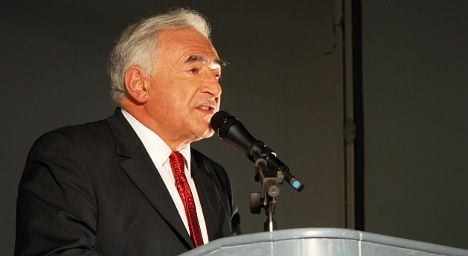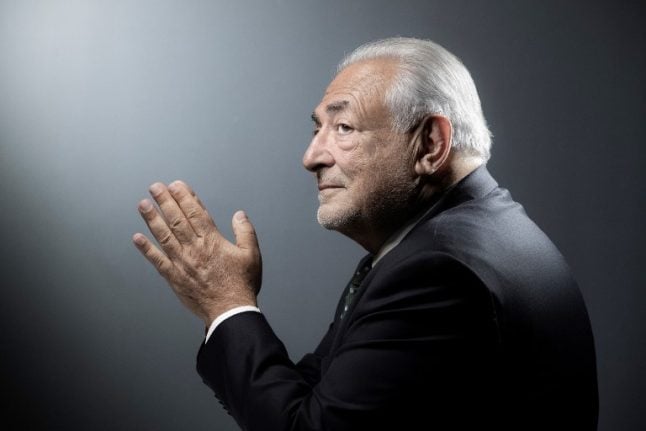Once touted as the French left’s best hope to take on President Nicolas Sarkozy in next year’s presidential election, Strauss-Kahn has been caught up in a series of scandals despite New York police dropping charges that he sexually assaulted a hotel maid.
Now France’s Socialists are turning their backs on the man they once hailed as the party’s saviour.
“We can see in hindsight that his candidacy would have been very vulnerable,” prominent Socialist lawmaker Pierre Moscovici told news magazine Le Point this week.
“I am disgusted,” a high-ranking French Socialist once close to Strauss-Kahn said. “I have the feeling of being cruelly betrayed, the feeling that I was duped by Dominique.”
French newspapers have this month been reporting in torrid detail the latest accusations to hit Strauss-Kahn — that while head of the International Monetary Fund he attended sex soirees with prostitutes paid for by businessmen.
The case began after the manager and the public relations chief of the luxury Carlton hotel in the northern city of Lille were arrested and charged with arranging prostitutes for guests with the help of a pimp based in Belgium.
Lille police chief Jean-Christophe Lagarde, who was detained by police for questioning as part of the pimping probe, allegedly attended evenings at a luxury Paris hotel along with prostitutes and Strauss-Kahn.
David Roquet, head of a subsidiary of construction giant Eiffage, allegedly paid part of the tab from the Paris hotel sex soirees, billing his company with invoices marked with Strauss-Kahn’s initials “DSK”.
Reporting on the scandal this week, news magazine Marianne described the probe as “an investigation into the French Berlusconi,” comparing Strauss-Kahn to the Italian prime minister famed for his raunchy parties.
The reports emerged after French prosecutors said Strauss-Kahn had admitted to acts “that could be qualified as sexual assault” against French writer Tristane Banon in 2003 but that they were halting an investigation because the statute of limitations had expired.
Strauss-Kahn is also still facing a US civil suit by Nafissatou Diallo, the Guinean chambermaid who alleges he assaulted her at the New York hotel.
Strauss-Kahn has told AFP that he wanted the authorities to question him as soon as possible over the latest allegations in order to end the “insinuations”.
But unlike after his arrest in New York, the French left has not rushed to defend Strauss-Kahn this time, instead denouncing his alleged sexual escapades and seeking to distance him from the Socialists.
“I am flabbergasted by his inability to face up to his responsibilities,” a former ally told Le Point.
“The page on DSK has been turned, without regrets,” a Socialist lawmaker said.
The Socialists are now pinning their hopes on Francois Hollande, a party insider who was chosen as the candidate in a primary this month.
The French people also seem to have turned against him, with Strauss-Kahn coming last in a recent poll measuring trust in public figures.
The Ipsos poll released on Monday showed 71 percent of respondents saying they had an unfavourable view of Strauss-Kahn and only 20 percent a favourable one. He was ranked 35th out of 35 in the poll, down seven spots from only a month ago.
“How is it possible that such a vulnerable man was carried up to the steps of the presidency, to the point that he was declared the victor before even being a candidate?” Le Point said.
“The accumulation of revelations is turning into a sad farce, putting without a doubt the final nail in the coffin of a man who had been so glorified.”



 Please whitelist us to continue reading.
Please whitelist us to continue reading.